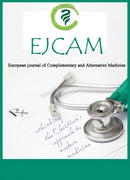Abstract
Title
A COMPARATIVE STUDY TO ASSESS THE EFFECTIVENESS OF CHILD-TO-CHILD APPROACH IN TEACHING PERSONAL HYGIENE AMONG SELECTED RURAL AND URBAN MIDDLE SCHOOL CHILDREN, BANGALORE
Author
Tejeshwari B V
Email
Tejeshwari@gmail.com
keyword
Assess,
nutritional status,
school children, midday meal
Abstract
Health promotion for and by children has great potential for bringing about
positive and perceptible changes in their health, knowledge, attitudes, and above all,
practices and behaviour. A nation’s wealth is measured by the health of the children. So
health of the children is more important. Creating awareness among children is essential to
ensure practice of good hygiene. Childhood period is most specific in bringing changes in
life style. School is the ideal place for giving health education. It serves as an important
institution in the life of the child. The education imparted in the school goes to their homes,
family and neighborhood. It helps in transferring the knowledge from child- to- child, child
to parent and child to neighborhood and thereby to the whole nation. This ultimately
reflects on thoughts, actions and behaviour of each citizen. Health education will bring
forth changes in the lifestyle that is set in children. Prevention costs less than cure and
promotes health. This can be aided best by imparting adequate knowledge. Children are
more susceptible to health problems. They need to be educated regarding health practices
which help to promote their health and health of the community as a whole. Objectives: - 1.
To assess the pre-test knowledge of the children in selected rural and urban middle school
regarding personal hygiene. 2. To assess the post-test knowledge of the children in
selected rural and urban middle school regarding personal hygiene. 3. To assess the
effectiveness of child-to-child approach in teaching personal hygiene among rural and
urban middle school children. 4. To compare the pre-test and post-test knowledge of both
urban and rural middle school children regarding personal hygiene. Design: -Descriptive
survey design was used to study to assess the nutritional status of school children and its
relation to mid-day meal Programme in a selected rural school, Bangalore. 66 primary
school children, in selected rural schools Bangalore were recruited by non-probability
purposive sampling technique. Necessary administrative permission was obtained from
concerned authority. Structured interview schedule was used to elicit the baseline data and
structured questionnaires were used to elicit the knowledge regarding mid-day meal among
selected rural school children, Bangalore. Setting: -The study was conducted in selected
rural schools, Bangalore, 66 samples were recruited for the present study. Result: - The
data was analyzed by using descriptive and inferential statistics. Nutritional status of school
children was assessed and tabulated, out of 66 school children according to weight for age
status out of 66 school children, 14 only (21.21 percentages) is having normal nutritional
status. Out of that 24 (36.36%) are having first degree malnutrition and 26 (39.4
percentages) are having second degree malnutrition. Only 2 (3.03 %) are having third
degree malnutrition. It is evident that males are more prone to malnutrition. Out of 66
school children, 40.9 % are having normal nutritional status. Out of 66, 57.5 % are mildly
impaired and 1.6% is severely impaired. Only 3.03 % of the school children are having
third degree malnutrition. It is evident that males are having more impairment (3.12%), when compared to females (1.6%). Conclusion: - The overall experience of conducting this
study was satisfying and enriching the knowledge. The study was a new learning
experience for the investigator. The study shows that there is a great need to develop and
implement Nutritional Status of School Children and Its Relation to Mid-Day Meal
Programme













